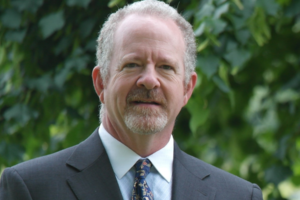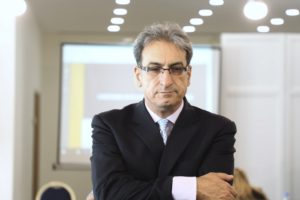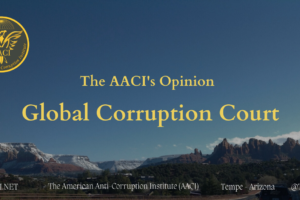June 13, 2017; Technical Staff
The AACI currently prepares an initiative for the Arab countries healthcare sector. It is an ambitious and innovative anti-corruption project. Transparency, integrity, and accountability are fundamental pillars of the project. The Arab countries healthcare decision makers and executive management will always play a pivotal role in preventing and deterring fraud and corruption. They set the proper tone at the top!
The following constitutes an integral part of The AACI’s anti-corruption initiative in the Arab countries healthcare sector.
INTRODUCTION
Ban Ki-moon’s, the United Nations Secretary-General, message on the International Anti-Corruption Day on December 9, 2016 was forceful and alarming: “Corruption strangles people, communities and nations. It weakens education and health…..No country is immune, and every country bears a responsibility to end it.”[2] Fighting corruption is not an option; it becomes a global objective of the international community. Goal 16[3] of the 17 Sustainable Development Goals (SDGs)[4] of the 2030 Agenda for Sustainable Development — adopted by world leaders in September 2015 at an historic UN Summit — urges substantial reductions in corruption and bribery and the development of effective, accountable and transparent institutions at all levels.
CORRUPTION IN THE GLOBAL HEALTHCARE
Since 2008 global average fraud, error, and corruption losses in healthcare have risen 25% from 5.59% of expenditure to 6.99%. Reduction in fraud and error losses of up to 40% is possible within one year – freeing up to $195 billion globally. The world is losing some $487 billion to fraud and error annually according to a report “The Financial Cost of Healthcare Fraud 2014” from BDO LLP, the accountancy and business advisory firm in partnership with The Centre for Counter Fraud Studies at the University of Portsmouth.[5]
The global healthcare expenditure for 2013 was $7.35 trillion while the estimated global average loss rate of 6.19% [6] was due to fraud, error, and corruption. Such a loss amounted to $ $455 billion. Other studies estimated the annual loss in the global healthcare market to be worth 10% of the global gross national product. [7][8][9][10]
CORRUPTION IN THE ARAB COUNTRIES HEALTHCARE
“The Middle East and North Africa’s total healthcare spending is estimated to be $125 bn this year, according to Al Masah Capital, a Dubai-based alternative-investment management firm. Government spending is estimated to account for 64 per cent – or $80 bn – of the total market, with private-sector healthcare spending making up the rest. The role of the private sector is expected to increase in the Mena market, according to Al Masah Capital. It forecasts that the private-sector healthcare market will be worth $61bn in 2020, more than double its size in 2011.” [12]
Waste due to widespread inefficiencies, over-prescription of drugs, and needless medical tests amounts to $40 billion in the MENA public healthcare sector, according to Haidar Al Yousuf, the head of funding at the Dubai Health Authority.[13] “In our region … 50 per cent of the money we spend on health, due to inefficiency, is not properly utilized,” he said. Medical insurance fraud and abuse — ranging from over prescribing medication or keeping patients in hospital longer — is hitting operators’ margins. GCC countries try to tackle a growing healthcare corruption multibillion US dollar problem.[14]
The corruption prevailing in the Arab countries casts its shadows on the healthcare services. In a survey published by Transparency International (TI) on May 3, 2016, it states that fifty million people in the Middle East and North Africa had to pay bribes to access the basic services that they needed.[15] That is nearly 1 in 3 public service users like medicine, education, or water. The survey uncovers the public pessimism and skepticism of the governments efforts in fighting corruption. An analysis by Transparency International in 2010 showed that increasing transparency, accountability and integrity in 48 countries has a robust correlation to better outcomes in health, education and water.[16] This holds true irrespective of a country’s wealth or how much it spends in a specific sector.
A UNDP sponsored study identified some of the common corrupt practices in the health sector in developing countries.[17] They include absenteeism, theft of medical supplies, informal payments, fraud, weak regulatory procedures, opaque and improperly designed procurement procedures, diversion of supplies in the distribution system for private gains and embezzlement of health care funds. Each of these practices alone represents a major challenge in many developing countries.
Surveys conducted by the Kaiser Family Foundation examining Americans’ opinions on the US role in global health have consistently found that the American public views corruption as a major problem. [18]

Public perception on the role of corruption in improving health in developing countries (Kaiser Family Foundation). Surveys conducted by the Kaiser Family Foundation examining Americans’ opinions on the US role in global health have consistently found that the American public views corruption as a major problem. In its 2015 survey, 44% of respondents believed that ‘corruption and misuse of funds’ was the most important reason why health cannot be improved in developing countries. 79% of respondents believed corruption was a major barrier, meaning that corruption is viewed by the American public as the biggest barrier (more than lack of infrastructure/resources, poverty, lack of political leadership and effective programs, and lack of funding) to investing in programs that support global health goals.
Healthcare providers in the Arab countries face significant challenges and opportunities to meet their customers’ primary expectation: transparent and corruption free quality health services. Delivery of reliable and quality services at affordable and competitive prices is a rational strategic objective of any hospital. Although such a goal seems plausible, it is a challenging one. Transparency, corruption prevention strategies, sound governance practices, effective internal control systems, and compliance with professional protocols, relevant laws, rules, and regulations are among those challenges. These are business risks.
A Healthcare provider that does not show a high commitment to address these risks in its business strategies leaves its businesses, operational activities, and professional practices susceptible to error[19], fraud, and corruption. Because corrupting in the healthcare industry kills, preventing corruption becomes paramount.
Notes and References
[1] Corruption, in the context of this document, means abuse of power or perceived power for private monetary or non monetary gain and it includes fraud. Corruption could be internal or external. Corruption is an intentional act to deceit others though a misrepresentation of material fact(s).
[2] “Secretary-General’s Message on International Anti-Corruption Day.” United Nations Secretary-General, December 9, 2016. https://www.un.org/sg/en/content/sg/statement/2016-12-09/secretary-generals-message-international-anti-corruption-day-scroll.
[3] Nino, Florencia Soto. “Peace, Justice and Strong Institutions.” United Nations Sustainable Development. Accessed March 20, 2017. http://www.un.org/sustainabledevelopment/peace-justice/.
[4] Nino, Florencia Soto. “Sustainable Development Goals – United Nations.” United Nations Sustainable Development. Accessed March 20, 2017. http://www.un.org/sustainabledevelopment/sustainable-development-goals/.
[5] “The Financial Cost of Healthcare Fraud 2014.” PR Newswire, Mar 25, 2014. http://library.pittstate.edu:2048/login?url=http://search.proquest.com/docview/1510238292?accountid=13211.
[6] Jim, Gee, and Button Mark. “The Financial Cost of Healthcare Fraud 2015 What Data from around the World Shows,” September 2015. http://www.port.ac.uk/media/contacts-and-departments/icjs/ccfs/The-Financial-Cost-of-Healthcare-Fraud-Report-2015.pdf.
[7] Mackey, Tim K., and Bryan A. Liang. “Combating Healthcare Corruption and Fraud with Improved Global Health Governance.” BMC International Health and Human Rights 12 (2012): 23. doi:10.1186/1472-698X-12-23.
[8] Growing threat from counterfeit medicines. Bull. World Health Organ. 2010, 88: 247-248.
[9] Dyer O: New report on corruption in health. Bull. World Health Organ. 2006, 84: 84-85.
[10] Total expenditure on health as a percentage of gross domestic product (measured in US$).http://www.who.int/gho/health_financing/total_expenditure/en/index.html,
[11] Stuart, Peggy. “HR Attacks Health-Care Fraud.” Personnel Journal 74, no. 3 (03, 1995): 28.
[12] Flanagan, Ben. “Up to $40 Billion of Arab World’s Spending on Health Care Wasted | The National.” News. The National, February 28, 2015. http://www.thenational.ae/business/economy/up-to-40-billion-of-arab-worlds-spending-on-health-care-wasted.
[13] Flanagan, Ben. “Up to $40 Billion of Arab World’s Spending on Health Care Wasted | The National.” News. The National, February 28, 2015. http://www.thenational.ae/business/economy/up-to-40-billion-of-arab-worlds-spending-on-health-care-wasted.
[14] McGinley, Shane. “Revealed: How the Gulf Is Losing Billions to Medical Insurance Fraud.” Arabian Business, September 6, 2013. http://www.arabianbusiness.com/revealed-how-gulf-is-losing-billions-medical-insurance-fraud-516791.html.
[15] Transparency International. “50 Million People in the Middle East and North Africa Paid Bribes Last Year.” Www.transparency.org, May 3, 2016. https://www.transparency.org/news/feature/50_million_people_in_the_middle_east_and_north_africa_paid_bribes_last_year.
[16] See Transparency International (2010). ‘The anti-corruption catalyst: realising the MDGs by 2015’, Berlin, Germany, p. 1.
[17] Kohler, Jillian. “Fighting Corruption in the Health Sector: Methods, Tools, and Good Practices.” Democratic Governance Group Bureau for Development Policy United Nations Development Programme, October 2011. http://www.undp.org.tt/News/UNODC Anticorruption%20Methods%20and%20Tools%20in%20Health%20Lo%20Res%20final.pdf.
[18] DiJulio, Bianca, Mira Norton, and Mollyann Brodie. “Americans’ Views on the U.S. Role in Global Health.” The Henry J. Kaiser Family Foundation, January 20, 2016. http://kff.org/global-health-policy/poll-finding/americans-views-on-the-u-s-role-in-global-health/.
[19] What distinguishes error from corruption is the intent. An error is an unintentional act that results in damages. See note 1.


![Transparency and Corruption[1]Prevention in the Healthcare Industry](https://blog.theaaci.com/wp-content/uploads/2017/11/Procurement-Fraud-900x500.jpg)








































